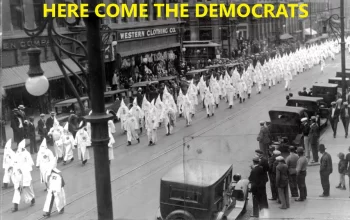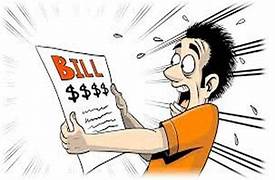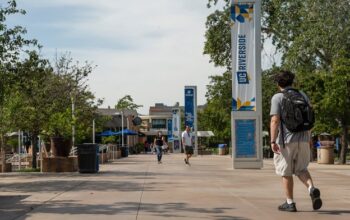What San Fran Mayor Breed is upset that Elon Musk used the laws and programs she supported, took the money and then when he met the conditions of the grants, left the State. Maybe she should worry about the corruption in City Hall and in government in the city, rather than a job creator that does not accept high taxes, bad regulations and the high cost of energy and water.
“San Francisco Mayor London Breed lashed out at Tesla boss Elon Musk as “the person who got a ton of tax breaks in California and decided to take that money and run.”
Breed, who has lamented the adverse economic impact of remote work on her city, has expressed frustration with tech CEOs for promoting the narrative that the Bay Area was a crime-infested hellhole full of drugs and homeless people.
“My hope is that those who are critical would focus on trying to be a part of the solution rather than part of the problem,” Breed told Bloomberg News.
Maybe she needs to worry about the 50% commercial vacancy rate, that is growing? She needs to be concerned about firms that are not returning to San Fran instead of someone who played by the rules—that she and her fellow politicians created.
San Francisco mayor blasts Elon Musk: ‘Got tax breaks then took money and ran’

By Ariel Zilber, NY Post, 10/17/22
San Francisco Mayor London Breed lashed out at Tesla boss Elon Musk as “the person who got a ton of tax breaks in California and decided to take that money and run.”
Breed, who has lamented the adverse economic impact of remote work on her city, has expressed frustration with tech CEOs for promoting the narrative that the Bay Area was a crime-infested hellhole full of drugs and homeless people.
“My hope is that those who are critical would focus on trying to be a part of the solution rather than part of the problem,” Breed told Bloomberg News.
When asked about Musk’s frequent criticism of Democrat-run states and cities, Breed replied sarcastically: “You mean the person who got a ton of tax breaks in California and decided to take that money and run?”
Last year, Musk relocated the headquarters of his electric car company, Tesla, to Austin, Texas. It had previously been headquartered in Palo Alto, Calif.
The decision by Musk to pull up stakes and leave the Bay Area was met with outrage from California lawmakers who reminded him that Tesla had received more than $3.2 billion worth of direct and indirect subsidies from Sacramento since 2009.
But Musk was in no mood for nostalgia. Upon announcing his decision to move to Texas, he said: “California used to be the land of opportunity. Now it has become and is becoming more so the land of overregulation, overlitigation, overtaxation and scorn.”
In April, Musk, who is in the process of acquiring San Francisco-based social media firm Twitter, suggested that the company’s headquarters in the Civic Center section of the city be converted into a homeless shelter “since no one shows up anyway.”
Breed, a Democrat, also called out San Francisco tenant Marc Benioff’s Salesforce, the city’s largest private employer and owner of its tallest office tower.
Breed told Bloomberg News she has tried to persuade Benioff, a billionaire and native San Franciscan, to bring his charges back into the office.
“He’s very supportive of the city, continues to contribute that support to schools and to other great causes, but the building is empty, and that’s a real problem,” Breed said of Benioff.
“Ultimately I can’t force or mandate, right? These companies are making the decisions that they believe that are in their best interests.”
The lack of foot traffic in tech-dominated San Francisco has had a devastating impact on small businesses in the area. The city estimates that one-third of its pre-pandemic workforce has stayed away from the office.
Breed told Bloomberg News that her city will need to “get creative and diversify” if it hopes to lure employees back into their cubicles.
Since 2021, Salesforce has put in place a so-called “hybrid” model for its 77,000 employees who were given the choice to work “where, when, and how they’ll be most effective.”
Contact information for Salesforce, Benioff, and Musk were not immediately available.
Last year, remote work and a flight of companies from the area resulted in a $400 million reduction in tax revenue, according to the Office of the Controller.
Meanwhile, offices remain vacant.
The real estate research firm CBRE reported that the office vacancy rate in San Francisco rose in the second quarter to 24.2% — up from 23.8% in the first quarter. It is the highest vacancy rate in the nation among large cities.
Manhattan office space has a vacancy rate of 15.2% in the second quarter while downtown Atlanta is at 22.8%, according to CBRE. Chicago (21.2%), Los Angeles (21.8%) and Seattle (20.3%) also reported high vacancy rates.
San Francisco has also experienced a steep decline in the quality of life.
In August, a consortium of small businesses in the trendy Castro District threatened to withhold tax payments unless the city took action in removing homeless people from the area.
Breed hopes that San Francisco’s proximity to world-class universities such as Stanford and University of California, Berkeley, as well as its status as the epicenter of venture capitalism will be enough to entice tech workers to return.
“People may not like what they see, and they’re probably frustrated with all of this, but it doesn’t mean that the city is not working its ass off to try and help people,” Breed said.



